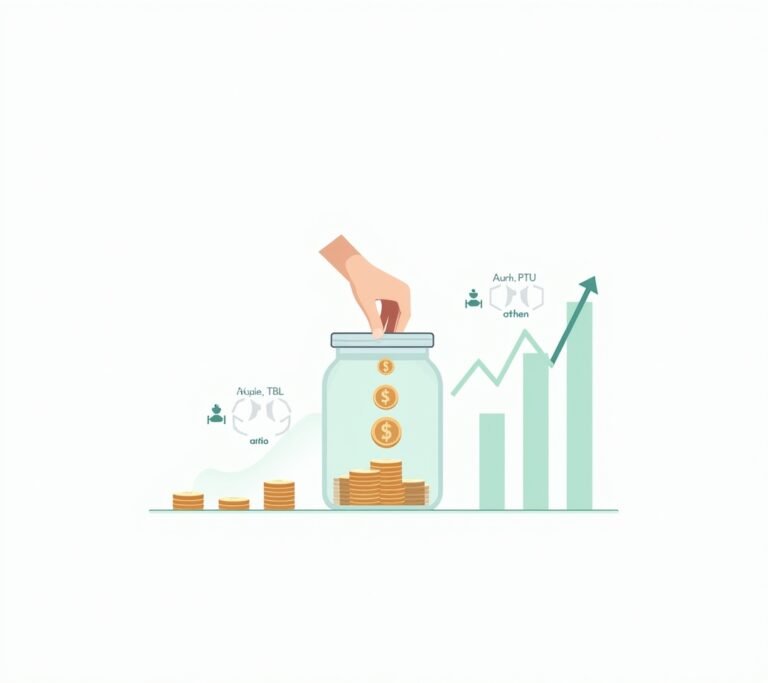Here’s a fun fact that blew my mind when I first started investing: 89% of actively managed funds fail to beat the market over 15 years. That’s when I realized I needed to get serious about passive investing! But then I hit another wall – should I go with index funds or ETFs?
Look, I’ve been down this rabbit hole more times than I care to admit. The whole index fund versus ETF debate used to keep me up at night, scrolling through investment forums like some kind of finance nerd. And honestly? I made some pretty dumb mistakes along the way that cost me real money.
What Are Index Funds and ETFs Anyway?

Before we dive into the nitty-gritty comparison, let me break this down real quick. An index fund is basically a mutual fund that tracks a specific market index – like the S&P 500. Meanwhile, an ETF (Exchange-Traded Fund) does pretty much the same thing but trades on the stock exchange like individual stocks.
I remember when my colleague first explained this to me over coffee. “Think of it like this,” she said, “index funds are like taking the bus – you get on at scheduled times and pay a set fare. ETFs are like rideshare – you can hop on whenever you want, but the price might fluctuate.”
Trading Flexibility: The Real-Time vs End-of-Day Battle
This is where things get interesting, and where I learned my first expensive lesson. ETFs trade throughout market hours, just like stocks. You can buy and sell them anytime the market’s open.
Index funds? They’re different beasts entirely. You place your order, and it gets executed at the end of the trading day at the net asset value (NAV). No real-time trading here, folks.
I once tried to time the market during a volatile day in 2022 – big mistake! I kept refreshing my brokerage account, watching ETF prices bounce around like a ping-pong ball. Meanwhile, my buddy who stuck with index funds just placed his order and went about his day. Guess who made the better decision? Spoiler alert: it wasn’t me.
Minimum Investment Requirements: The Barrier to Entry
Here’s where ETFs really shine, especially for beginners. Most ETFs let you buy even a single share. If you’ve got $50 burning a hole in your pocket, you can get started with many popular ETFs.
Index funds, on the other hand, often have minimum investment requirements. Vanguard’s index funds typically start at $3,000. That was actually a huge barrier for me when I first started out – I was a broke teacher trying to invest whatever I could scrape together each month.
- ETFs: Usually no minimum investment (just the price of one share)
- Index funds: Often $1,000-$3,000 minimum initial investment
- Some brokerages offer fractional shares for both options now
Cost Comparison: Every Penny Counts
Both index funds and ETFs are generally pretty cheap compared to actively managed funds. But the devil’s in the details here, and I learned this the hard way.
ETFs typically have slightly lower expense ratios. We’re talking about differences of maybe 0.02% to 0.05% annually. That might not sound like much, but over 30 years of investing, those tiny differences can add up to thousands of dollars.
However – and this is a big however – you might pay trading commissions with ETFs depending on your brokerage. Most major brokers like Fidelity and Schwab have eliminated these fees, but it’s something to double-check.
Tax Efficiency: The Hidden Advantage
This is where ETFs get really interesting from a tax perspective. They’re generally more tax-efficient than mutual funds because of how they’re structured. Without getting too deep into the weeds, ETFs can shed low-basis shares through redemptions, which helps minimize capital gains distributions.
I didn’t really appreciate this until I got hit with an unexpected tax bill from a mutual fund distribution. That was a fun conversation with my accountant – not!
Automatic Investing: Set It and Forget It
Here’s where index funds take the crown. Most brokerages let you set up automatic investments into index funds. Every month, money gets pulled from your checking account and invested automatically.
With ETFs, this gets trickier since you’re buying whole shares at market prices. Some brokerages now offer fractional share programs, but it’s not as seamless as traditional index fund investing.
My Bottom Line After Years of Trial and Error

After making plenty of mistakes and learning from them, here’s what I’ve figured out. If you’re just starting out with limited cash, ETFs are probably your best bet. The low barriers to entry and flexibility make them perfect for beginners.
But if you want to set up automatic investing and never think about it again, index funds are the way to go. They’re boring, predictable, and perfect for long-term wealth building.
Honestly, both are solid choices for building wealth over time. The most important thing is to start investing consistently, regardless of which option you choose. Don’t let analysis paralysis keep you on the sidelines like I did for way too long.
Want to dive deeper into smart money strategies and investment tips? Check out more posts on Budget Hackers – we’ve got tons of practical advice to help you build wealth without the fancy finance jargon!




[…] you found these tips helpful, check out more money-saving strategies over at Budget Hackers. We’re always sharing new ways to stretch your dollars and build better […]